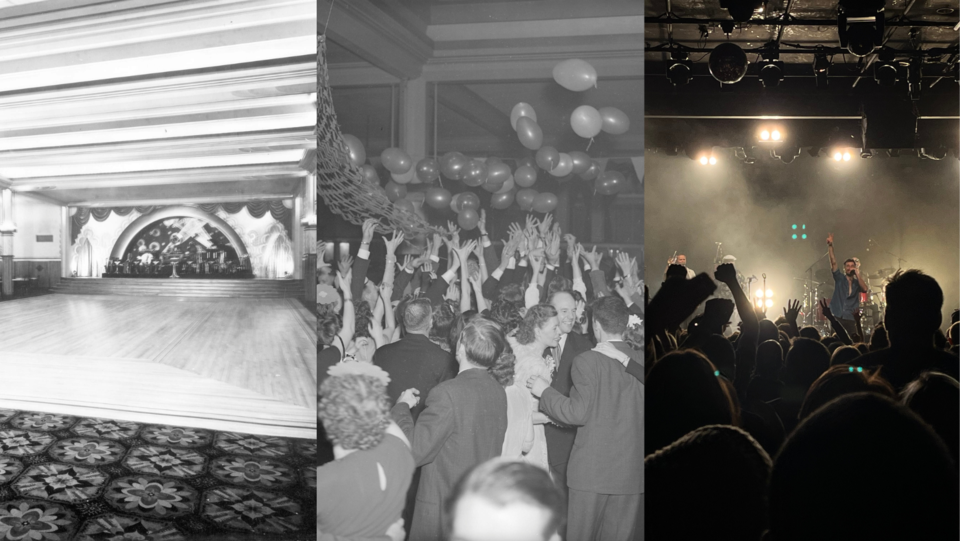Vancouver's Commodore Ballroom is one of the city's major event and concert venues.
It's played host to the first show many notable bands play in Vancouver, from Blondie to the Red Hot Chili Peppers to Katy Perry. It was even the site of The Clash's first show in North America, and was the last place the iconic Spirit of the West played before John Mann tragically died at age 57.
Over the years there have been enough stories in and around the concert hall to fill a book (and there is one).
But for most people in the city is simply a pillar of the live music community; virtually everyone has beenthere at some point to see a show.
So here are five facts you (probably) didn't know about it.
1. It used to be a "bring your own liquor" venue
B.C. went through it's own period of prohibition from 1917 to 1921; however, when it ended, it wasn't as if lawmakers made alcohol free and easy to get.
While the Commodore Ballroom didn't open up until the 1930s, many old laws were in place that restricted when and where alcohol could be consumed (more so than now).
Since the Commodore Ballroom wasn't one of those places, drinking there was technically illegal (until 1969-70). However, it wasn't uncommon. One Vancouver Province article from 1951 noted somewhere between 600 and 800 people were observed illegally consuming alcohol.
While police did try and raid these "bottle clubs" they didn't have much success at the Commodore. That's because the doorman at street level signalled the band (at the time they had house bands usually) with a buzzer that a police squad had arrived.
At that signal the band started playing "Roll out the Barrel" and all the bottles of liquor would disappear from the tables.
2. It was named the most influential music club in Canada
To be fair, it wasn't directly named the most influential music club in Canada, but it's the de facto title.
In 2011 Billboard magazine (famous for song charts) created a list of the top 10 most influential clubs in North America.
Of them, nine were American, including the Troubadour, the Bowery Ballroom and the Fillmore. Only one was Canadian.
The Commodore Ballroom
3. It faced massive fines in 1951
One might expect a "bottle club" in the 1950s to get dinged for the alcohol, but it was actually tax evasion.
The company was fined for seven years of falsified tax returns and had to pay a $111,000 settlement and then the individuals were each fined, totalling another $14,000.
That sounds like a fair amount of money in 2024, but at the time it was massive. To account for inflation, the settlement would have be more than $1.3 million and the fines another $167,000; huge amounts for a private venue.
4. The floor was full of horse hair
For decades the Commodore Ballroom had a famed sprung dance floor made out of an unusual material: horse hair.
At the time it was built in the 1930s, the material, which was used with tires to give the floor a soft feel underneath the hard wood, wasn't that unusual.
The original floor lasted more than 60 years until it had to be replaced in the mid 1990s, so if you went for a show prior to 1995, you danced on horse hair (covered by wood).
5. It's owned by Live Nation and Ticketmaster
The Commodore Ballroom has been owned by a few different groups over the years.
Notably, it was built and opened by George Reifel; the Reifels have had a large influence on the city over the years. However, it had to close almost immediately and was soon sold to Nick Kogas and Johnny Dillias.
In the 90s it ended up in the hands of the the House of Blues, a company financed by Dan Akroyd, Aerosmith and Harvard University, among others.
In 2006 Live Nation bought House of Blues, and then Live Nation and Ticketmaster merged (though both brand names remained).



